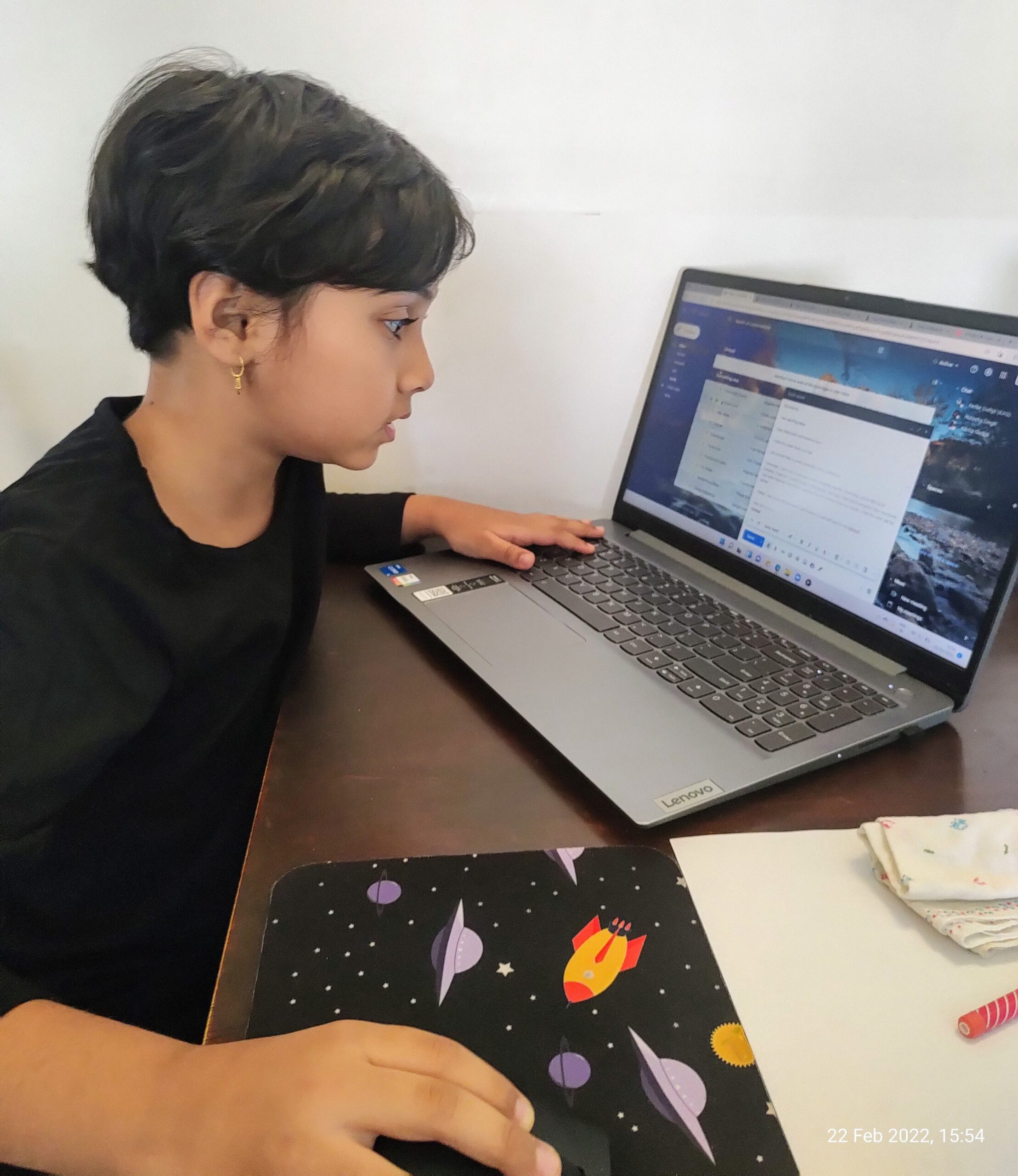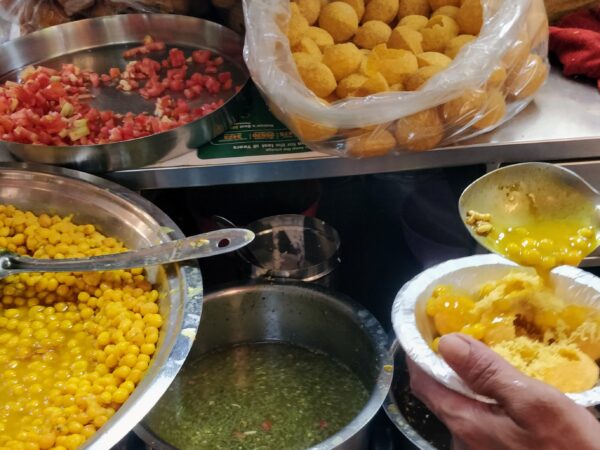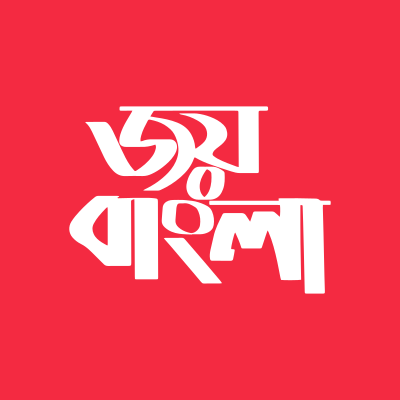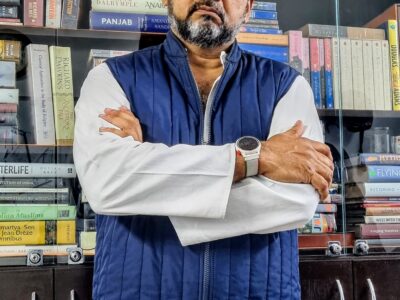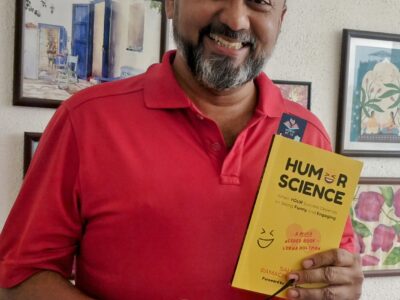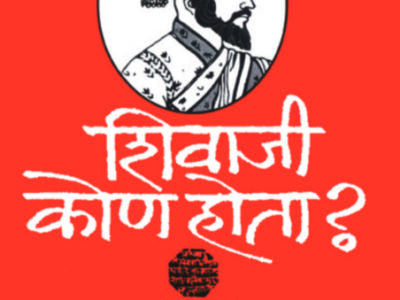Yesterday, 21 February, was the International Mother Language Day.
I have been thinking as to how it would be defined in today’s world, where everything is in flux, shaken & mixed up, hybridised, cross-bred, connected, and melded into each other so much so that even when I look at my daughter, I wonder what her true heritage really is, she being a quarter UPite, a quarter Nepali (but with a Bengali heritage), and half Maharashtrian, and that her children will be even more diluted, if I may use that word in the purely technical sense and amalgamated into humanity, losing their connections to any one specific heritage as they go further and further from it. Ditto language. I mean, Kym speaks English and Nepali fluently, pidgin Hindi (can ‘pidgin’ be used for a non-European language?), and extremely basic Marathi and Mandarin (I believe her fluency levels in both are about the same). We speak Hindi and English at home, she speaks to her Aji in Marathi and English and her Nani in Nepali and English, and to her cousins in Marathi. What really then, is her ‘Mother Language’?
Recently. I have been asking for help to find someone to come and play with Kym in Marathi and Hindi (separately) so that she becomes familiar with the tongue and perhaps learns to love it, enough for her to want to learn the script and then read, hopefully graduating to writing soon after. I have interviewed at least a dozen people till now, and found no one, either because they cannot come so far or I cannot afford their rates, or because their understanding of what I want to do is muddled due to their background in language and literature education. My brief to them is, well, brief: ‘teach my daughter to argue and fight in Hindi/Marathi.’ I believe that the true test of proficiency in a language is if you can pick, conduct, and win a fight in it. Unfortunately, my efforts have come to nought as of the time of writing this. I am still looking. And yes, we also discontinued Kymaia’s ISL (Indian Sign Language) classes because the teacher could only manage one day in a week for 45 minutes, and we thought that it is inadequate to learn a new language. We were right. Kym was losing interest. So, we are on the lookout for a new ISL teacher too, even online is fine. Do help us find a Hindi, Marathi, and ISL teacher if possible. Message me in private if you have a lead. You will win my eternal friendship (and perhaps a beer that I promise to buy should we ever meet IRL).
How do we prefer Kym learns the language? Well, I think it will be fair to say that her Mandarin teacher, Deepa laoshi (‘teacher’ or ‘guru’ in Mandarin) is one of the best we have been lucky to have. She has a mix of technical and entertaining methods she utilises, with a lot of nursery rhymes, videos, conversations, and sometimes rote learning, to get her point across. And Kym is in love not just with Mandarin, but with her Deepa laoshi as well. Now, that’s something rare, and we are looking to find someone with similar commitment, skills, and approaches for Hindi, Marathi, and ISL.
Why so much emphasis on languages? Well, for starters, the obvious: the more languages she learns (and she can, at this age, easily learn half a dozen of them as per studies), the more her brain will develop (once again, as per numerous studies). But perhaps more importantly, as per my own philosophy of teaching, I’d rather teach my kid mathematics, languages, and basic science, then point them to a library and a Google, preferably in that order, and let them learn what they want, than put them through a formal learning system, especially one that exists in India (or for that matter, the USA or UK or Australia or Japan or China). If I want a curious, well-balanced, well-adjusted, constantly learning, open-minded, healthy (both mentally and physically) adult that lives a fulfilling, active, and interesting life, and you bet your last Bitcoin I want Kym to be one, then there is nothing better than teaching her as many languages that she can learn as step 1 of the process.
The late Christopher Hitchins said in an interview, as an answer to the question, ‘Which natural gift would you most like to possess?’, the following:
‘The ability to master other languages (which would have hugely enhanced the scope of these answers).’
And going back to my definition of linguistic proficiency (the ability to win an argument in a fight), I think we can all agree that the Hitch really knew what he was talking about!
I rest my case.

